How Long Do Rabbits Live A Rabbit Lifespan Guide
So, you're curious about your fluffy friend's lifespan? It's a completely natural question! A rabbit's life expectancy is surprisingly variable, influenced by a multitude of factors. While a healthy domestic rabbit living in a loving home can expect to live between 8 and 12 years, some fortunate bunnies may even reach the ripe old age of 15. Conversely, others might sadly fall short of this due to underlying health conditions or inadequate care. This guide delves deeper into the intricacies of rabbit longevity, helping you understand what influences their lifespan and how to provide the best possible care for your furry companion throughout their life.
| Factor | Impact on Lifespan |
|---|---|
| Breed | While breed doesn't drastically alter lifespan, certain breeds may exhibit a predisposition to specific health issues. For instance, larger breeds might be more prone to joint problems, while smaller breeds might be susceptible to dental issues. |
| Diet | A nutritionally balanced diet is paramount. Insufficient fibre, for example, can lead to serious digestive problems and dental issues, significantly shortening their life. |
| Environment | A safe, clean, stimulating, and appropriately sized environment is crucial. Stress from overcrowding, inadequate housing, or lack of enrichment can negatively affect their health and lifespan. |
| Genetics | Just like humans, some rabbits possess inherently stronger constitutions than others. Genetic predisposition to certain diseases can, unfortunately, impact lifespan. |
| Healthcare | Regular veterinary check-ups are vital. Early detection and treatment of illnesses dramatically improve the chances of a long and healthy life. |
What is the average lifespan of a domestic rabbit?
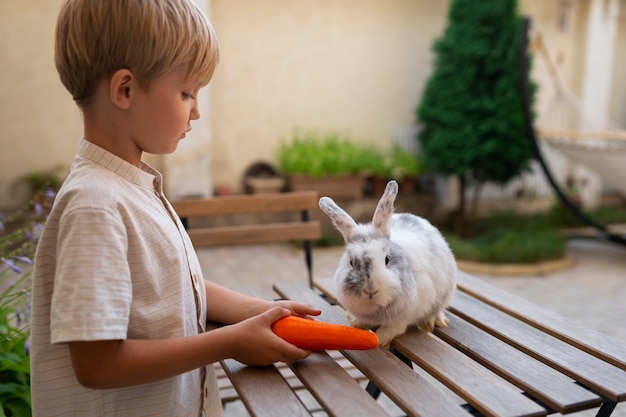
The average lifespan of a domestic rabbit typically falls within the 8 to 12-year range. However, this is merely an average; individual lifespans can vary considerably. Think of it as a guideline, not a strict rule. Many factors, discussed in detail below, contribute to the variability in lifespan. Remember, providing the best possible care significantly increases your rabbit's chances of reaching the upper end of this range, or even exceeding it.
| Lifespan Range | Description |
|---|---|
| 8-10 years | A typical lifespan for a rabbit receiving adequate care. |
| 10-12 years | Represents a longer lifespan, often achieved with excellent care and a generally healthy rabbit. |
| Over 12 years | This is considered a remarkable lifespan for a rabbit, often attributed to superb genetics, exceptional care, and a generally healthy lifestyle. |
How long do different breeds of rabbits live?
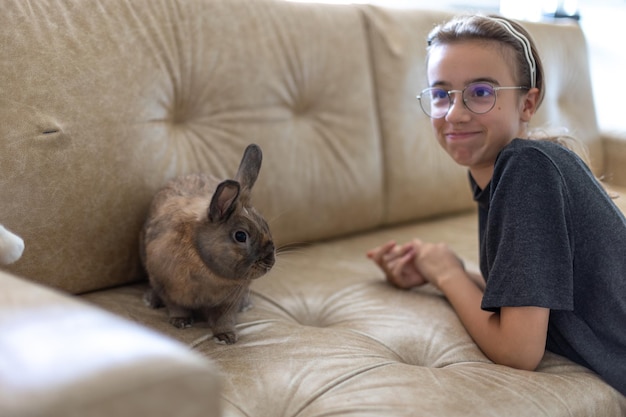
While breed isn't the primary determinant of lifespan, certain breeds might show a higher predisposition to specific health conditions. This predisposition, however, does not automatically translate to a shorter lifespan; it simply highlights potential health challenges that require careful management. For example, giant breeds might be more prone to skeletal issues like arthritis, necessitating careful monitoring and potentially dietary adjustments. Smaller breeds might be more vulnerable to dental problems, requiring regular check-ups and appropriate dental care. Ultimately, individual health and care far outweigh breed-specific predispositions.
| Breed Example | Potential Issues & Management |
|---|---|
| Giant Flemish Rabbit | Joint problems: Maintain a healthy weight, provide comfortable bedding, and consider supplements as advised by a vet. |
| Dwarf Lop | Dental issues: Regular vet check-ups for dental care are essential, potentially requiring professional cleaning or correction. |
| Dutch Rabbit | Generally hardy, but still require a balanced diet, suitable housing, and regular vet care. |
| Note: | This is not an exhaustive list and individual variations are significant. |
What factors affect a rabbit's lifespan?
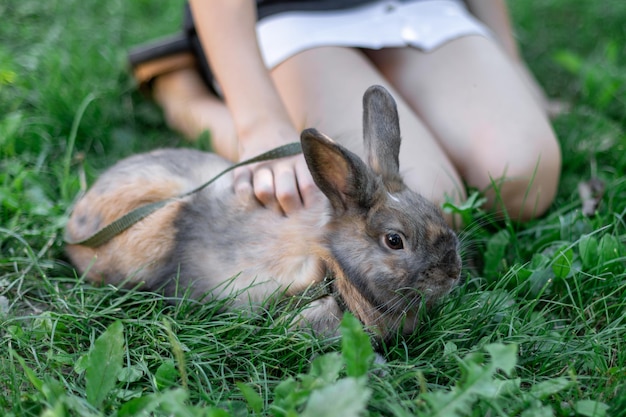
A rabbit's lifespan is a complex interplay of various factors, each playing a significant role in its longevity. Providing optimal care in all these areas dramatically increases the likelihood of a long and fulfilling life for your bunny companion.
- Diet: A balanced diet forms the cornerstone of a rabbit's health. Unlimited access to high-quality hay (constituting 80-90% of their diet) is crucial for dental health and proper digestion. Fresh vegetables provide essential vitamins and minerals, while pellets should only be given in moderation, as a supplement.
- Genetics: Inherited traits play a role in a rabbit's overall health and resilience to disease. Some rabbits are naturally more robust than others.
- Environment: A spacious, secure, clean, and stimulating environment significantly contributes to a rabbit's well-being. Enrichment, such as toys, tunnels, and hiding places, helps prevent boredom and stress, both detrimental to their health.
- Healthcare: Regular preventative veterinary care is crucial. Early detection and treatment of illness are vital in preventing complications that could shorten a rabbit's life.
- Stress: Chronic stress can weaken a rabbit's immune system, making it more susceptible to illness. Providing a secure and predictable environment is essential for minimising stress.
| Factor | Positive Impact | Negative Impact |
|---|---|---|
| Diet | Strong immune system, healthy teeth and digestion | Dental disease, obesity, digestive problems, malnutrition |
| Environment | Reduced stress, opportunities for exercise and exploration | Boredom, stress, injury, illness from unsanitary conditions |
| Healthcare | Early detection and treatment of illness, preventative care | Untreated illness, complications, reduced lifespan |
| Genetics | Inherited robustness, resilience to disease | Predisposition to certain illnesses |
| Stress | Improved immune function, reduced risk of illness | Weakened immune system, increased susceptibility to disease |
Can a rabbit's diet influence its longevity?
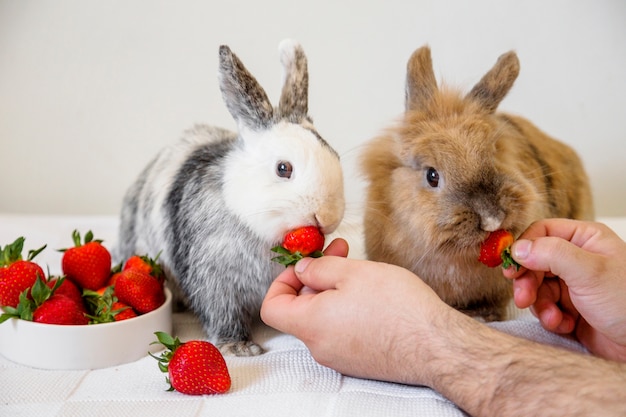
Undoubtedly! Nutrition plays a pivotal role in a rabbit's overall health and lifespan. A well-balanced diet, rich in fibre, is fundamental. Hay, specifically, should form the overwhelming majority of a rabbit's diet (80-90%), providing essential roughage for healthy teeth and digestion. Fresh vegetables and a small amount of high-quality pellets should complement the hay, offering vital vitamins and minerals. Avoiding sugary treats and processed foods is critical, as these can contribute to obesity, dental problems, and other health issues, directly impacting lifespan.
| Dietary Component | Importance & Potential Consequences of Imbalance |
|---|---|
| Hay | Essential for dental health and digestion; insufficient hay leads to dental overgrowth, digestive problems, and malnutrition. |
| Fresh Vegetables | Provides essential vitamins and minerals; lack of variety can lead to nutritional deficiencies. |
| Pellets | Should be a small supplement to hay and vegetables; excessive pellets can cause obesity and other health issues. |
| Treats | Only in very small quantities; excessive treats contribute to obesity and dental problems. |
How can I tell if my rabbit is aging?
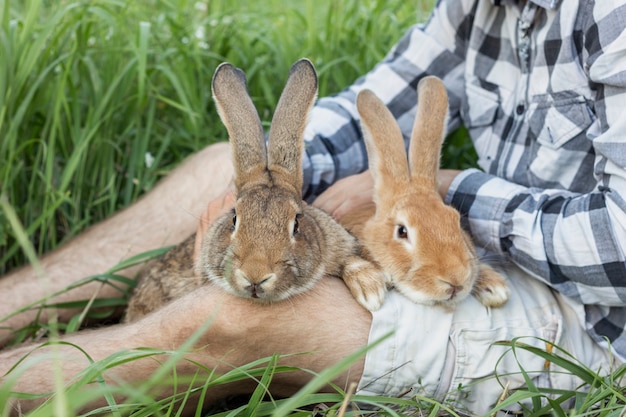
As rabbits age, subtle changes in their behaviour and physical condition can indicate the passage of time. These changes are often gradual, making early detection essential for appropriate care and management. Just as with elderly humans, rabbits may experience a decline in energy levels and a decrease in activity. It's crucial to distinguish normal age-related changes from potential health problems that warrant immediate veterinary attention.
| Sign of Aging | Description | Potential Underlying Issues |
|---|---|---|
| Reduced Activity | Less hopping, playing, and exploring | Arthritis, other musculoskeletal problems |
| Changes in Fur | Thinner, duller coat, patches of hair loss | Malnutrition, hormonal imbalances, skin conditions |
| Dental Problems | Difficulty eating, weight loss, drooling | Dental disease, malocclusion |
| Increased Sleep | Sleeping more frequently and for longer durations | Pain, illness, age-related decline |
| Changes in Appetite | Decreased food intake, picky eating | Dental problems, illness |
What are the common health problems in older rabbits?
Senior rabbits are more susceptible to a range of health issues. These conditions often arise gradually, making regular veterinary check-ups crucial for early detection and management. Early intervention can significantly improve a rabbit's comfort and quality of life in their senior years. These problems can significantly impact a rabbit's overall well-being and lifespan if left untreated.
| Common Health Problem | Symptoms | Management |
|---|---|---|
| Dental Disease | Weight loss, drooling, difficulty eating, changes in droppings | Regular dental check-ups, professional cleaning, dietary adjustments |
| Arthritis | Stiffness, reluctance to jump, lameness, changes in gait | Pain management, joint supplements (under veterinary guidance), comfortable bedding |
| Kidney Disease | Increased thirst, increased urination, weight loss, lethargy | Dietary adjustments, supportive care, medication |
| Tumours | Lumps or bumps, changes in behaviour | Veterinary examination, potentially surgery or other treatment options |
How can I provide optimal care for a senior rabbit?
Providing optimal care for a senior rabbit involves adapting your approach to accommodate their changing needs. This may involve adjusting their diet, modifying their environment, and increasing the frequency of veterinary check-ups. Small changes can significantly improve their quality of life and potentially extend their lifespan. Remember, these changes should always be discussed with your vet to ensure they are appropriate for your individual rabbit's situation.
| Care Tip | Description | Rationale |
|---|---|---|
| Easier to Eat Food | Softened hay, chopped vegetables, high-quality senior rabbit pellets | Addresses potential dental problems and reduces chewing effort. |
| Comfortable Bedding | Soft, warm bedding, easily accessible resting areas | Reduces discomfort from arthritis or other musculoskeletal issues. |
| Regular Grooming | Gentle brushing to maintain coat health | Helps prevent matting and skin problems, which are more common in older rabbits. |
| Vet Check-ups | More frequent check-ups to monitor health and address age-related issues | Early detection and management of health problems. |
| Supportive Care | Providing a calm and stress-free environment | Reduces stress and promotes comfort. |
Are there any signs of a rabbit nearing the end of its life?
Recognising the signs that a rabbit is nearing the end of its life is crucial for providing appropriate end-of-life care. These signs are often subtle at first, gradually becoming more pronounced. While it's a difficult time, understanding these signs allows for a peaceful and supportive environment during the final stages of your rabbit's life. Your vet can provide guidance and support during this challenging period.
| End-of-Life Sign | Description | Implications |
|---|---|---|
| Extreme Lethargy | Unusually inactive, unresponsive, and showing little interest in their surroundings | Significant decline in overall health |
| Loss of Appetite | Refusal to eat or drink, significant weight loss | Failure of vital bodily functions |
| Difficulty Breathing | Laboured breathing, shallow breaths | Respiratory distress |
| Lack of Interest | Unaware of surroundings, unresponsive to stimuli | Significant decline in cognitive function |
| Incontinence | Loss of bladder or bowel control | Weakening of bodily functions |
Everyone is watching
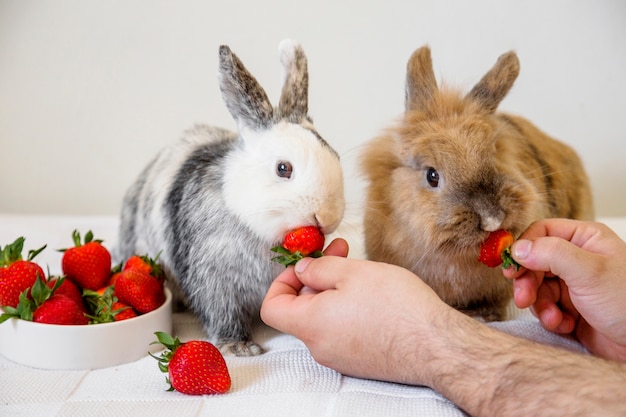
what do rabbits eat?
OTHER TYPES OF PETSRabbits, being strict herbivores, have a very specific dietary requirement that's crucial for their health and well-being. Their digestive system is ...

How Long Do Rabbits Live A Rabbit Lifespan Guide
OTHER TYPES OF PETSSo, you're curious about your fluffy friend's lifespan? It's a completely natural question! A rabbit's life expectancy is surprisingly variable, i...
Latest articles
-

what do rabbits eat?
OTHER TYPES OF PETSRabbits, being strict herbivores, have a very specific dietary requirement that's crucial for their health and well-being. Their digestive system is ...
-

How Long Do Rabbits Live A Rabbit Lifespan Guide
OTHER TYPES OF PETSSo, you're curious about your fluffy friend's lifespan? It's a completely natural question! A rabbit's life expectancy is surprisingly variable, i...
